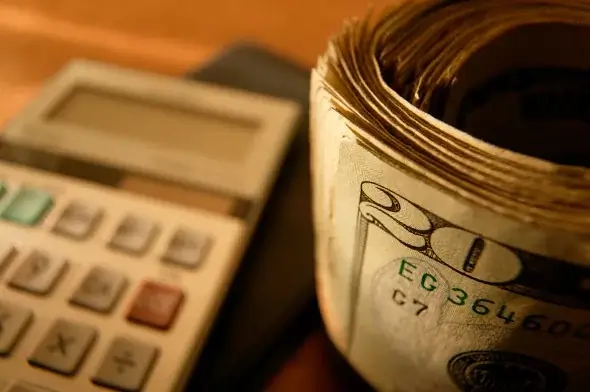Institution | Min. Deposit | APY Ad Disclaimer | Ad Disclaimer |
More from SmartAsset
CD Rates

Putting money in a CD from a bank or credit union can be a safe way to stash your savings and earn a little interest. These days, interest rates are low, which means you won't get astronomical returns from a CD. It's still worth comparing CD rates, though, because some are higher than others. It is important to understanding how CDs work and what features you should look for when choosing one. To find more info about individual CDs, take a look at our reviews. If you want to learn more about which CD might be best for you, check out our analysis of the best CD accounts.
CD Account Reviews
What is a CD?
A certificate of deposit, or CD, is offered by a bank, brokerage or credit union. You deposit some money in a CD from a bank and the bank pays you an interest rate over the term of the CD, which could be a few months or several years. This interest rate is generally modest but it beats what you would get from putting your money in a normal savings account - or under your mattress.
Why use a CD?

We all know it's important to put away money for the future. When it comes to saving for retirement, most financial experts advise saving a lot of money over the course of your career and investing that money in a mix of stocks and bonds. The goal is to end up with a hefty sum that will provide you with income in your post-work years.
In addition to saving for the long-term goal of retirement, it's important to have an emergency fund that you can fall back on in the event of a job loss, medical bill, car repair or other big expense that falls outside of your normal budget. The questions is where to put that emergency fund, which should be equal to at least 3-6 months of living expenses. It needs to be someplace the money won't lose value in a stock market fluctuation but will earn at least a little more interest than it would in your home safe.
Interest from a CD can help you offset the effects of inflation, which erodes the value of your emergency fund over time. (Of course, these days CD rates are quite low, so you may still need to top up your emergency fund over the years to account for inflation.)
Tempted to start saving in a CD? Here are the features you should understand before you buy.
Minimum Deposit
A CD isn't an account, it's a financial instrument you purchase, similar to a bond. That's why CDs have a minimum deposit. In effect, the minimum deposit is the price of the CD. Depending on your budget, you may only have a small amount to put in a CD. A CD rate comparison tool (like ours above) makes it easy to compare CDs by minimum deposit. Many banks also set a maximum on the amount you can deposit in CDs. Don't worry - the maximum is generally $250,000 (the limit for deposit insurance through the FDIC). $250,000 is way more than you would need to keep in low-interest savings, anyway.
APY
The APY is the Annual Percentage Yield of your CD. It tells you the interest rate over the course of 12 months. Why is this different from the stated interest rate (also known as the nominal rate)? Because of the impact of compound interest. If the money in your CD compounds more than once a year, its APY will be greater than its interest rate. The higher the yield, the greater the rate at which your money grows. To learn more about APY, check out our in-depth guide here.
CD Rates
If a CD compounds annually, its rate will be the same as its APY. So if you notice that a CD's APY is higher than its rate, it's a clue that you'll get more compounding for your money. That's why it's important to consider both the rate and the APY when you are comparing CDs. More compounding gives your money more room to grow.
Deposit Term

Why are CD rates generally higher than savings account rates? Because they come with a term. They're not like savings accounts, which you can access at will. With a CD, as with a bond, you'll need to wait until the end of the term before you get your money back, or you may have to pay an early withdrawal penalty. For the privilege of tying up your money, the bank offers you a slightly higher interest rate. Generally, the longer the CD term the higher the CD rate.
If you're concerned that you might need access to your money before the end of your CD term, you can always work on building what's called a CD ladder. With a CD ladder, you own a handful of CDs with staggered terms so that every year, six months or three months you have another small CD coming due. As each CD term ends, you can either use the money if you need it or take that money and use it to buy a CD with a later maturity date so that you continue the ladder. That way, you won't have a lot of money tied up in a single CD with a multi-year term.
Fees
Some banks charge an annual fee to CD-holders. These fees effectively reduce your APY because they eat into the money you're earning in CD interest. What's more, banks can increase their fees from year to year. You may open a 5-year CD that has no fee, be charged a $10 fee after the first year and get a bill for a $20 fee after the second year.
Brokered CDs (CDs purchased from banks by brokerage firms and then sold to consumers) can come with particularly high fees, but also give you the opportunity to build a portfolio of CDs from various banks without having to go through each bank. Instead, the brokerage facilitates the sale.
If you're fed up with fees and want to take your money out of the CD before the end of the term, your bank may charge a withdrawal fee and/or an account closure fee. There are no-penalty CDs out there but you have to look for them. That's why it's a good idea to read the fine print before you commit to a CD. Find out whether the account comes with maintenance fees and whether the bank reserves the right to raise those fees over the term of the CD.
If you have money in a brokered CD as part of a retirement account like an IRA, you may be charged taxes and a separate 10% early withdrawal penalty for taking money out of the IRA CD before age 59.5 - unless you roll over the money into a new retirement account within the 60-day window. If you're considering changing banks or brokerages, ask your new provider for help executing a tax- and penalty-free roll-over.

